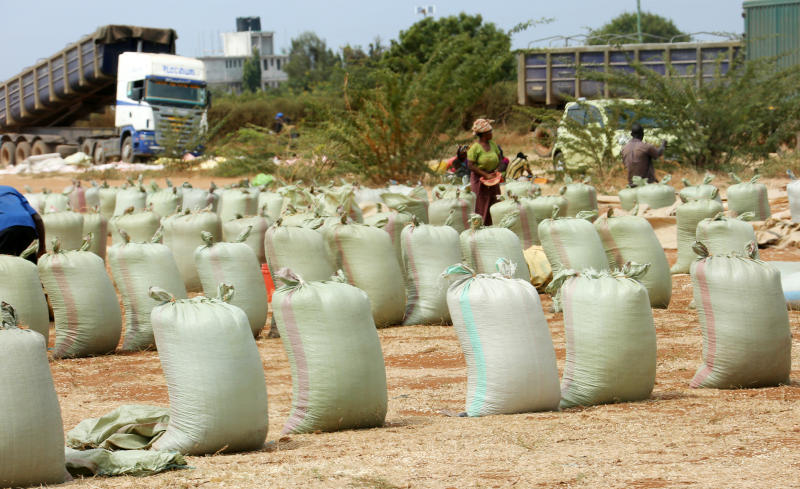Maize farmers in Tita Taveta wait to transport the commodity after drying it at Taveta Airstrip on July 20, 2016. [Gideon Maundu, Standard].
×
The Standard e-Paper
Smart Minds Choose Us

Hundreds of farmers in Taita hills are hoping for better yields, following the introduction of early maturing, hybrid variety of maize seeds in Taita-Taveta County.
Agriculture Executive Dr Davis Mwangoma said the maize varieties are high yielding, drought tolerant and offer a high level of tolerance to diseases.